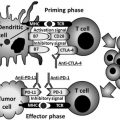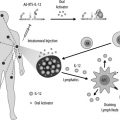
Translational research and the surgical oncologist
Traditionally, the surgical oncologist has been focused on the operative extirpation of tumors in concert with the multidisciplinary care of the patient. At the same time, the surgeon is typically the “gatekeeper” of the patient with solid tumors, consulted shortly after diagnosis and responsible for directing the overall care of the patient. Thus, the surgical oncologist is first and foremost an oncologist and not simply a surgical specialist. This role has been formally recognized by the creation of a subspecialty certificate in Advanced Surgical Oncology by the American Board of Surgery.
In order for surgical oncologists to maintain their roles as oncologists, it is essential for them to have a broad understanding of the science that underpins the diagnosis and treatment of cancer. This includes the genetic basis of inherited cancer syndromes as well as the various molecular abnormalities that predict cancer behavior and direct targeted therapeutics. Finally, one of the most exciting aspects of the development of these targeted therapeutics is that their high level of specificity can result in fewer toxic side effects. This has already been seen in the area of gastrointestinal stromal tumors where therapy with imatinib is routinely prescribed by surgeons as part of the overall treatment plan for this disease. Every day, new oral-based therapeutics are introduced into the clinical realm, and this heralds an exciting future with many new options for the cancer patient.
In this issue, we have assembled a distinguished group of surgical oncologists who are active translational researchers and who have focused on specific scientific pathways and approaches. The text is organized into two sections. The first section focuses on the various molecular pathways that are operative in human cancer and for which novel therapeutics are actively being developed. The second section focuses on individual disease sites for a more clinical orientation on translational therapeutics that have been taken to early- and late-stage clinical trials, and how this process of translation from the bench to the patient takes place.
It is our hope that this will provide both a broad overview of translational research in cancer and detailed information for specific areas in which the reader wants more information. As we move forward in treating cancer, it is apparent there will be no single “magic bullet” that will cure cancer, but rather a number of therapeutic options that will be tailored for an individual’s personalized genetic makeup. The pathways detailed in this monograph will provide the basis for rapidly evolving new therapeutics and it is essential for the surgical oncologist to be a part of this changing process.
Stay updated, free articles. Join our Telegram channel

Full access? Get Clinical Tree





